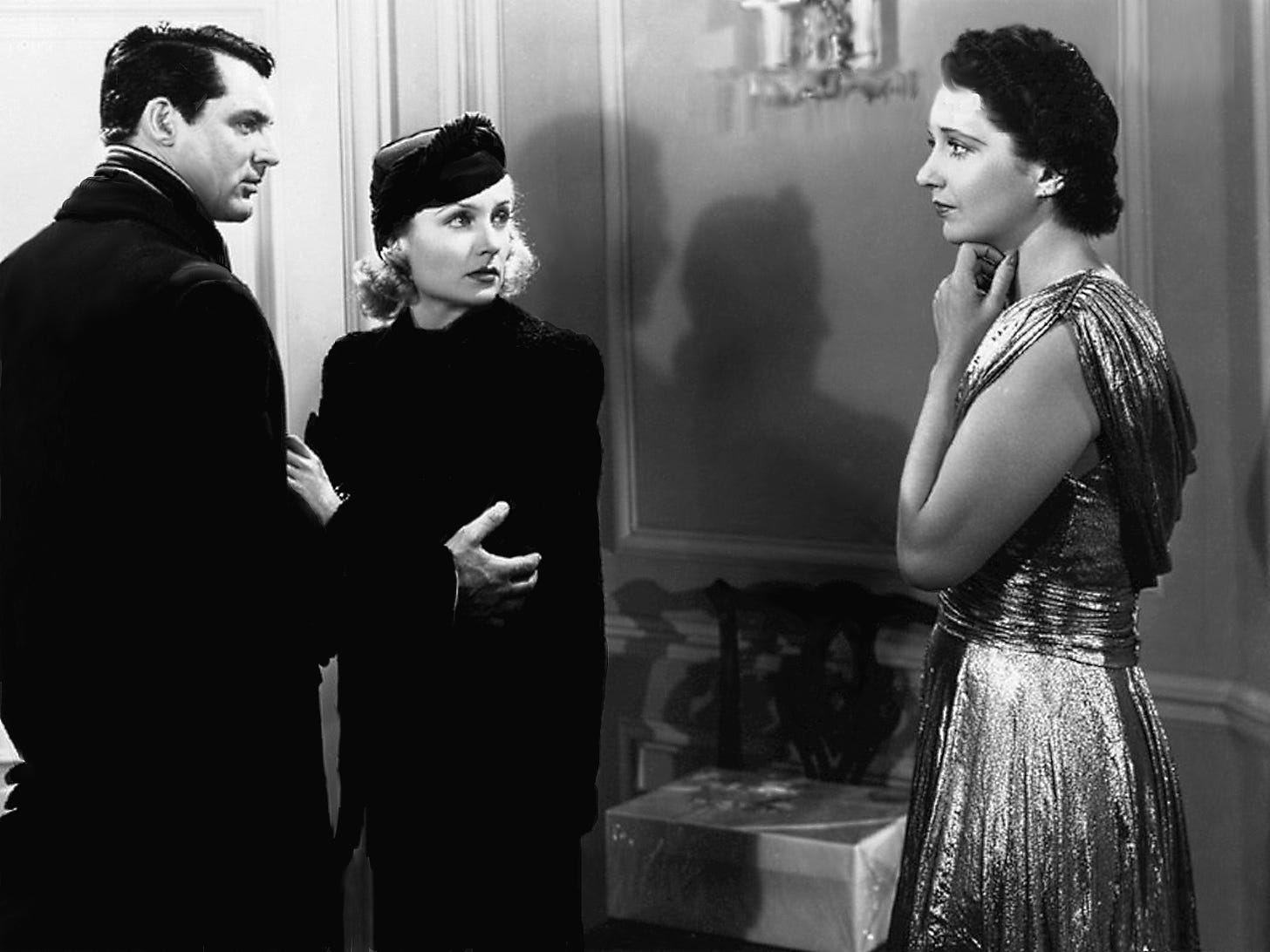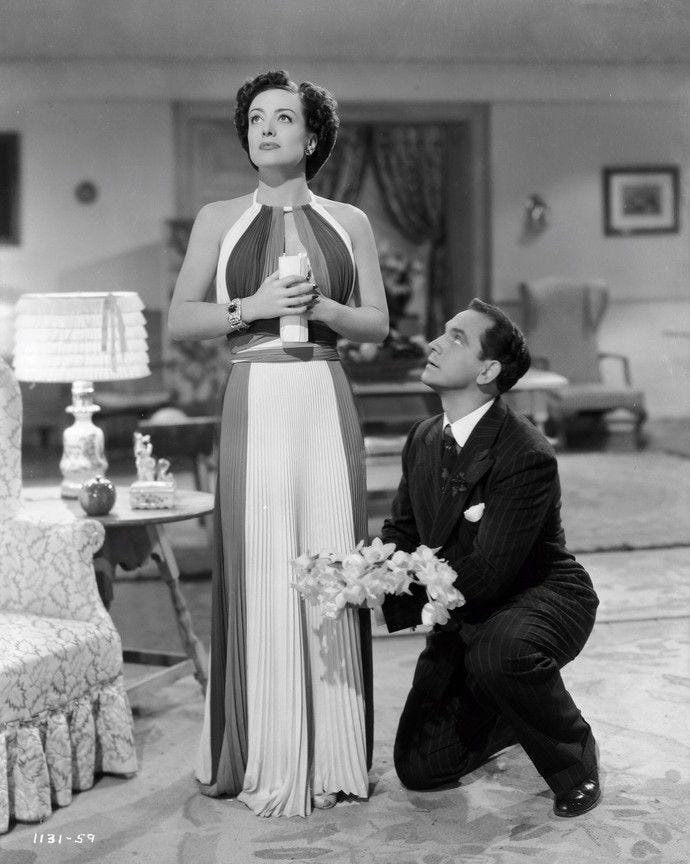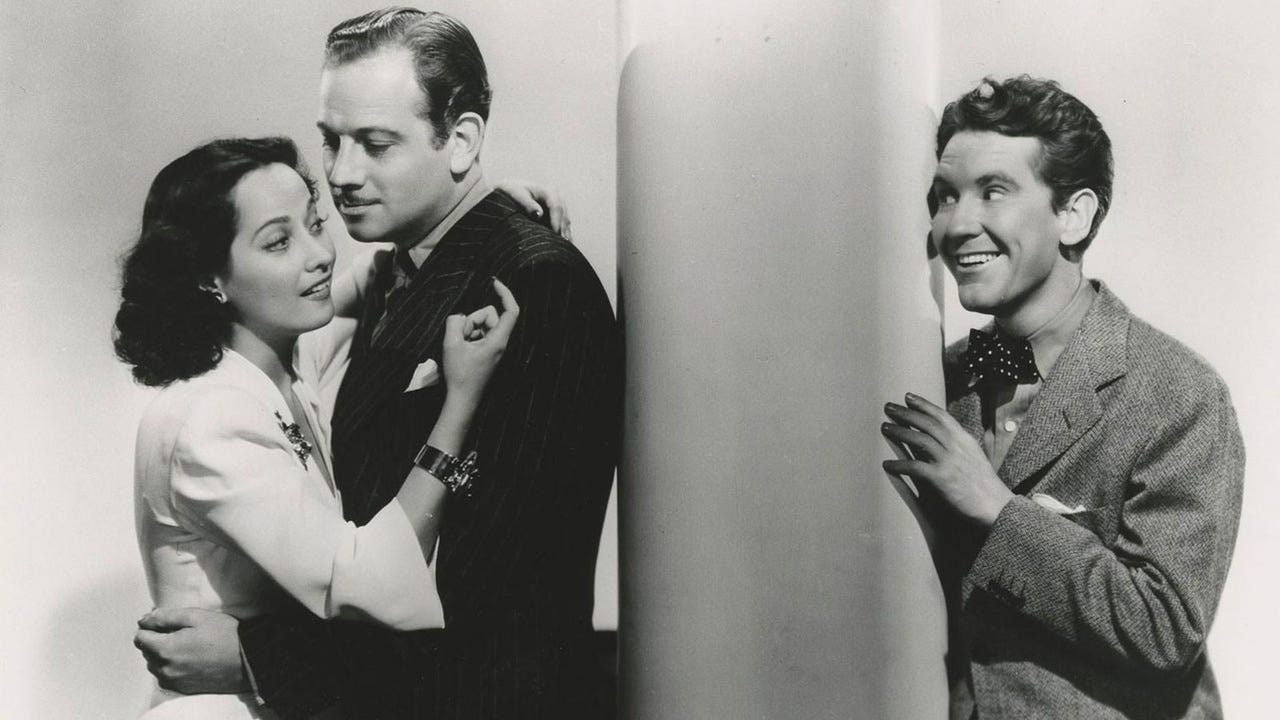In Name Only (1939)
While films in the 1930s may treat pre-no-fault divorce laws as comic opportunities (e.g., The Gay Divorcee and That Uncertain Feeling, from the next decade, below), my impression is that an increasing number of films present such laws as impertinences or outright injustices (e.g., One More River). In Name Only, with Carole Lombard, Kay Francis, and Cary Grant, seems in particular like a brief for no-fault divorce.
Grant is unhappily married to Francis, a manipulative sociopath. She lied to Grant, telling him that she was in love with him in order to marry him for his wealth and status. She is particularly effective at isolating Grant from his parents and family, convincing them that he is the cold-hearted beast and she the devoted wife and much-suffering victim. Narcissistic Personality Disorder, we would say today. Grant meets and falls in love with Lombard, a good-hearted widow with a little girl, and they long to get married but are stymied by the machinations of Grant’s wife.
Of course, Grant contributes to their miserable situation by a cinematic level of rectitude that, for some reason, prevents him from simply telling his family that his wife is a lying fiend. He even has written evidence of her duplicity, but lets it be destroyed. Not only that, he naively believes his wife when she seems to agree to his demand for a divorce, and tells him that she will go to Paris to obtain it, take Grant’s parents along with her, and break the news to them herself. What could go wrong?
Naturally, she returns from what was for her a lovely sojourn in France not at all divorced. When Grant says he’ll go to Reno straightaway for a divorce, she counters by saying that, if he does, she’ll file a countersuit alleging infidelity, and also bring Lombard into court: “I’ll sue you also for alienation of affections,” she tells Lombard, threatening to put Lombard’s daughter on the witness stand.
The melodramatic resolution comes when Grant is stricken with pneumonia. Lombard is prevented from seeing him in the hospital, as she has no legal status. (Decades later, this situation would become a central element in the emotional case for gay marriage.) The doctor, an authoritative Maurice Moscovitch, delivers the medical diagnosis to the family that Grant “has no desire to get well” and that his only chance of survival depends on Lombard being admitted to his bedside to tell him—even if it is not true—that they will be able to marry as soon as he recovers, which she does.
Conveniently, Grant’s parents then overhear Francis confess to Lombard that she doesn’t care if he lives or dies, and that her real goal is her father-in-law’s money. Finally wise to their daughter-in-law’s schemes, the parents go into the hospital room with Lombard, leaving Francis outside and the audience with a happy ending.

With the exception of Francis’s turn as a graceful sociopath, this is a dull movie, and a waste of its stars. It was evidently sanitized in its adaptation from its literary source—Memory of Love (1935), the first novel by the highly accomplished Jewish American journalist and writer Bessie Breuer. (I haven’t read the novel, but hope to sample Breuer’s works one day.)
It is nevertheless a movie with divorce on its mind, not only as regards the central plot, but in the case of its minor characters as well. For instance, Lombard has a divorced sister who is particularly bitter and distrustful of men—until she finds her own new love and starts to encourage Lombard in her romance with Grant.
And Grant is pursued by a gossipy, married “friend” of his wife who hopes that Grant’s unhappiness is an opportunity for them to have a casual affair. Grant can only get rid of this pest by telling her that he is in love with her and that they ought to divorce their spouses immediately and marry each other—at which she runs away in terror.
The message in the one case is that divorce is an emotional setback but not for long if faced maturely and, in the other case, that the avoidance of divorce is no guarantee of fidelity.
Susan and God (1940)
Another film adaptation of a once-successful work by a now-forgotten female writer and featuring a narcissist, Susan and God is based on a hit Broadway play by Rachel Crothers about a Park Avenue socialite who finds what she thinks is religion. Joan Crawford plays the titular character in the film, a rich and flighty woman whose self-absorption is impenetrable, and who has now taken up a quirky kind of evangelism as her new hobby. What she likes about this religious awakening is a faux-spiritual honesty that compels her to announce to all of her friends what is wrong with them and what they ought to be doing instead. Out of love, of course.
Crawford wants a divorce from her husband (Frederic March), who uses her newfound religious principles to get her to agree to give their marriage a last chance.
It’s enjoyable watching Crawford be horrible, but despite an Anita Loos screenplay and direction by George Cukor, the satire never coheres. March plays a recovering alcoholic—driven to drink by his wife, we are given to understand, much like Cary Grant in Cukor’s The Philadelphia Story from later that year. One both feels for him, and for their daughter, and has trouble comprehending why he is so determined to keep his marriage intact. That March in the end kicks an endearing Ruth Hussey to the curb in order to stay with Crawford makes it even worse.
Moral causes taken up for all the wrong reasons by empty and broken wealthy people is as fertile ground for satire today as ever, but the film misfires and feels more like a bad practice run for The Philadelphia Story.
That Uncertain Feeling (1941)
And another misfire, despite Ernst Lubitsch directing, a Donald Ogden Stewart screenplay, and the celestial Merle Oberon in the lead. Oberon, married to Melvyn Douglas, takes up for a spell with a moody and pretentious musician played by. . . Burgess Meredith?
A divorce lawyer is consulted, and Douglas must slap Oberon in front of witnesses in order to prove grounds of cruelty—but he is barely able to do so even after downing multiple whiskeys. In any case, he gets his wife back at the end.
The film is very loosely based on Sardou’s Divorçons, but the characters are obscure, their motivations abstract, and the screwball touches merely cute or odd, rather than funny. Lubitsch it may be, but this is a trough between Ninotchka and To Be Or Not To Be.





